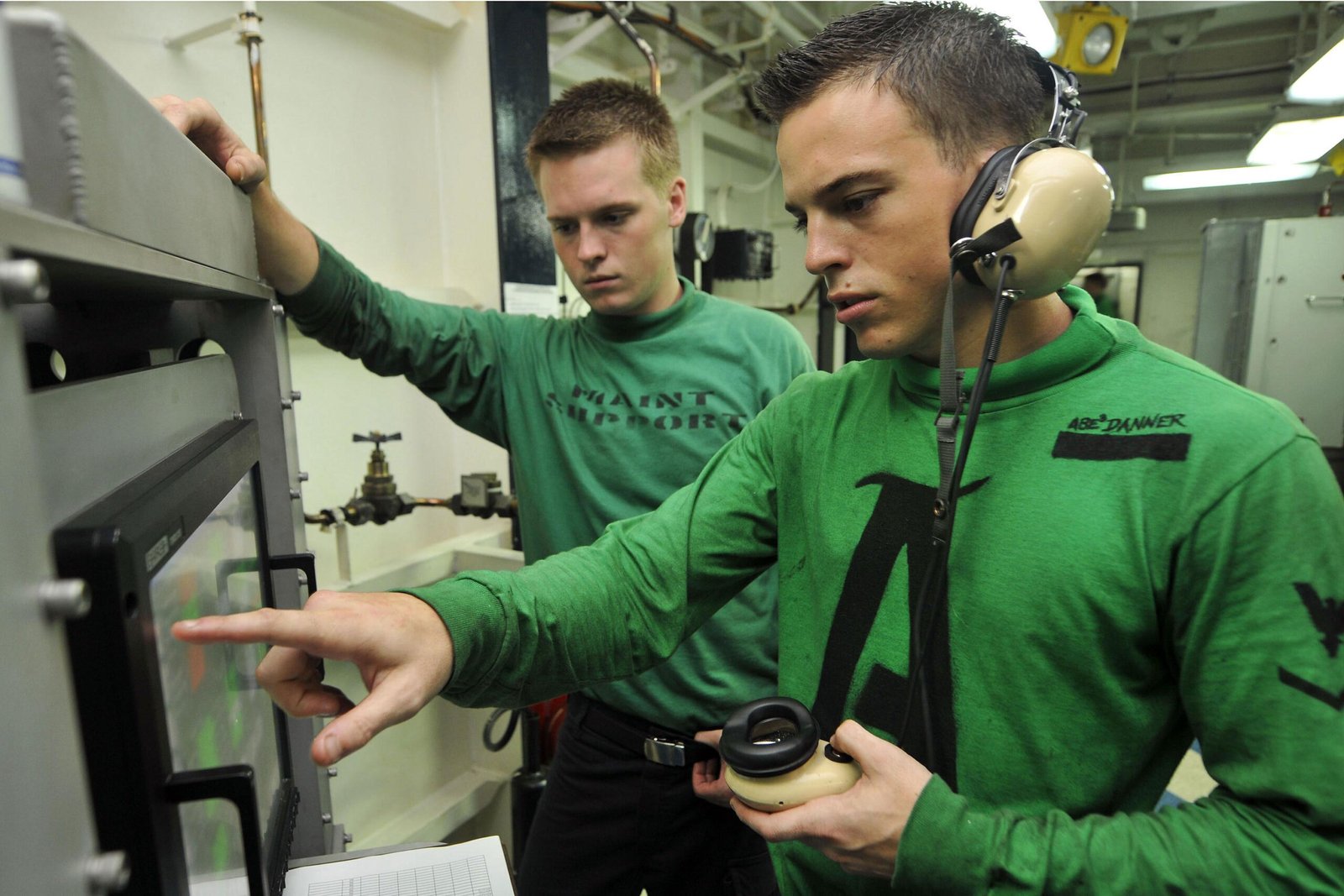The Aircraft Launch and Recovery Equipment (ALRE) Program Office (PMA-251) Recovery team will soon begin manufacturing and testing prototypes of upgraded components that control recovery operations on Nimitz-class ships.
The U.S. Navy awarded Northrop Grumman a $34.7-million contract for the Advanced Recovery Control (ARC) Block Upgrade prototype manufacturing and testing phase on June 13.
“The ARC Block Upgrade will ensure Nimitz class recovery operations will be safe, efficient, and modernized for years to come,” explained Capt. Mike Kline, ALRE program manager.
The last major modernization to Nimitz-class recovery came to the fleet in 2000, and while the systems are reliable, finding spare parts and implementing upgrades is becoming challenging as the system ages.
Justin Homme, ALRE Recovery CVN Integrated Program Team (IPT) lead, said his team’s new development effort will maintain existing system capability while reducing maintenance, incorporating modernized components, and applying lessons learned from the last two decades of use.
The team is focusing on strategies that allow for “plug-and-play” technologies, which will permit easier updates in the future, make obsolescence issues easier to address, and reduce the need for a total upgrade in the future.
“We want to bridge that gap to get us through the rest of the Nimitz timeline from a serviceability standpoint,” said Homme.
Wayne Kovacs, ARC IPTL, who has served ALRE for more than 40 years and the ARC team for 16 years, has first-hand experience with many of the changes the legacy ARC system has undergone to serve the fleet.
Kovacs said one of the biggest changes the fleet will receive with the ARC upgrade lies in the changes to cybersecurity.
“We’re looking at updates to our operating software, circuit cards, power supplies, and modernize a lot of these areas in a way that will make future changes easier,” said Kovacs.
Kevin Chen, ARC Deputy IPTL, has been with ARC and ALRE for nine years and is also heavily focusing on flexible modernization that will bring capability to the fleet for years to come.
Chen said the team is changing processes within their workflow to make the upgrade, testing and planning processes more efficient in the digital age.
The team is focusing heavily on long-term goals and planning to prepare ARC to serve the fleet until the last of the Nimitz class carriers are decommissioned in approximately three to four decades.
“In the future, upgrades won’t be as extensive as what we’re looking at now; we have 15 years of data at hand and we’re using it to design out any issues,” said Kovacs. “In that time, we’ve isolated any repeating issues with legacy ARC system, and we’re not seeing many new problems. It’s a good time to plan a long-term upgrade because we’ve captured and planned for most of them.”
ALRE is planning shipboard installation of ARC upgrades in 2029. In preparation, the team is working with prototype procurement beginning this year.
“This program is going to help us with our most important goal; sustaining naval aviation dominance for years to come.” said Homme.

